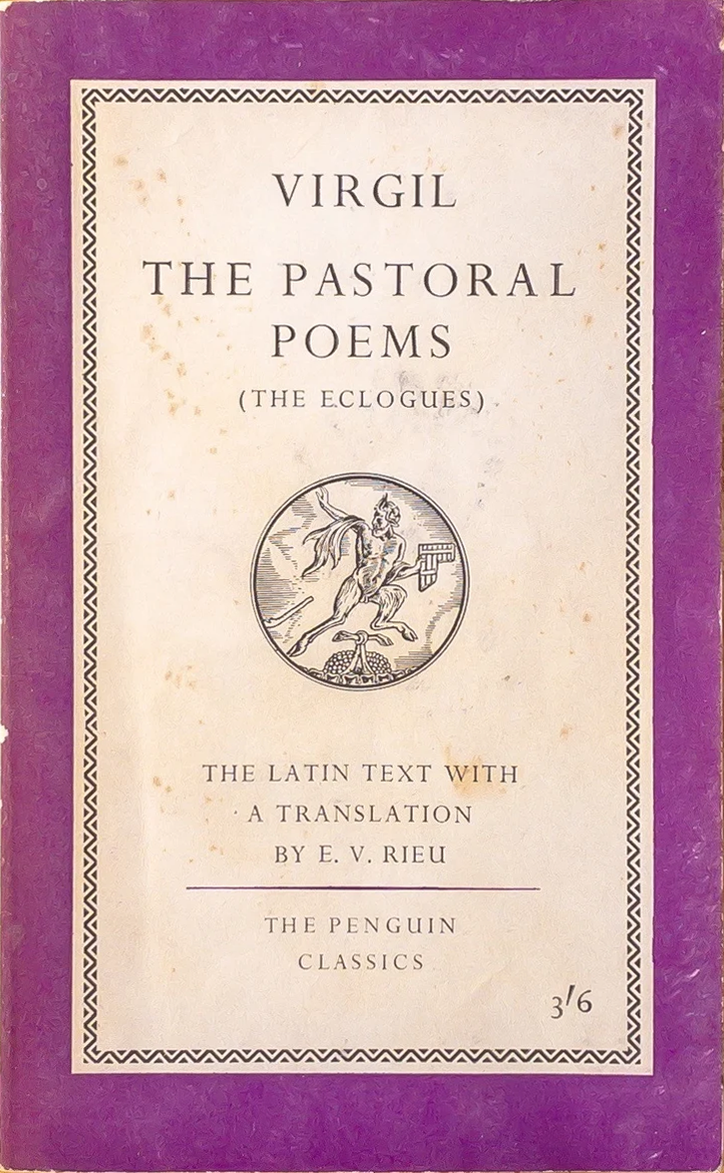What do you think?
Rate this book


151 pages, Paperback
First published January 1, 40
Some to thirsty deserts of Africa,This note of melancholy and fading glory persists throughout the book, but Tityrus's keen gratitude to Augustus, expressed with the eroticism that also suffuses Virgil's poetry, strikes a glorious contrast. This bittersweet tone of fading grandeur is probably what anyone who might use the adjective "Virgilian" would mean by it:
Some to Scythia, some to the region where
Oaxes rushes over its chalky bed,
Some as far away as the Britons,
Utterly cut off from all the world.
Stags will browse in the pastures of the airNote the imagery of tumult, change, upheaval, and loss even in this passage of triumph and thanksgiving.
And the sea will cast up its fish on the naked shore,
The exiled Parthian drink from the river Sa├┤ne
And the German drink from the Tigris, before that face,
The way he looked at me, will fade from my heart.
In pity he sings the tale of Pasipha├½ŌĆ�Virgil's "pity" for transgressive desire, his distanced and ironical retelling of an old story crossed with an unmistakable poignance and passion, again shows the reader more used to modern writing that it may not be so modern after all.
She would have been lucky if there had never been cattleŌĆ�
Who hopelessly fell in love with a snow-white bull.
Ah, poor unhappy maiden, what was this madness?
Proteus' maddened daughters thought they were cows;
Their mooing filled the fields as if they were;
And yet, though in her madness each of them feared
The yoke about her neck and often fingered
Her smooth brow for the signs of bovine horns,
There wasn't one of them who ever really
Desired vile copulation with a beast.
Ah, poor unhappy maiden, now you wander
Along somewhere in the hills; meanwhile, the bull
Couching his snow-white flank on hyacinth flowers,
Lies in the shade of the ilex, chewing on pale grasses,
Or follows after some heifer in the herd.
"Dictaean Nymphs," cries out Pasiphaë,
"Surround the upland pastures and close them in.
It may be that I'll see his hoofprint signs.
It may be that some meadow down below
Will tempt him or the sight of cows in the herd
As they come home will lead him down to our stables."
Your cradle will be a cornucopiaVirgil's depoliticizing redactions of the fourth eclogue famously allowed centuries of Christian commentators to read it as typologically as they read the Hebrew BibleŌĆöto see in it, that is, a prophesy of the birth not of Antony's son but rather of Christ. (This is among the reasons for Virgil's privileged position in Dante's Christian corpus.) I see in the poem a different lesson,* however: local politics, no matter how urgent they seem when we are in the midst of them, are very quickly forgotten, while great poetry will be remembered for two thousand years.
Of smiling flowers blossoming around you;
Nowhere will there be serpents anymore,
And nowhere plants in which a poison hides;
And everywhere the Assyrian spice will flourish.
░┌ŌĆ”]
No longer then will merchant ships set forth
Laden with things to trade in foreign places;
Each land will bear of itself what it needs for itself;
The earth will suffer the harrow's tooth no longer
Nor vines suffer the claw of the pruning-hook;
No longer need cloth learn to imitate colors;
Out in the meadow the fleece of the ram will change
Of its own accord from purple to saffron yellow;
In the meadow the lambs will graze in bright red coats.